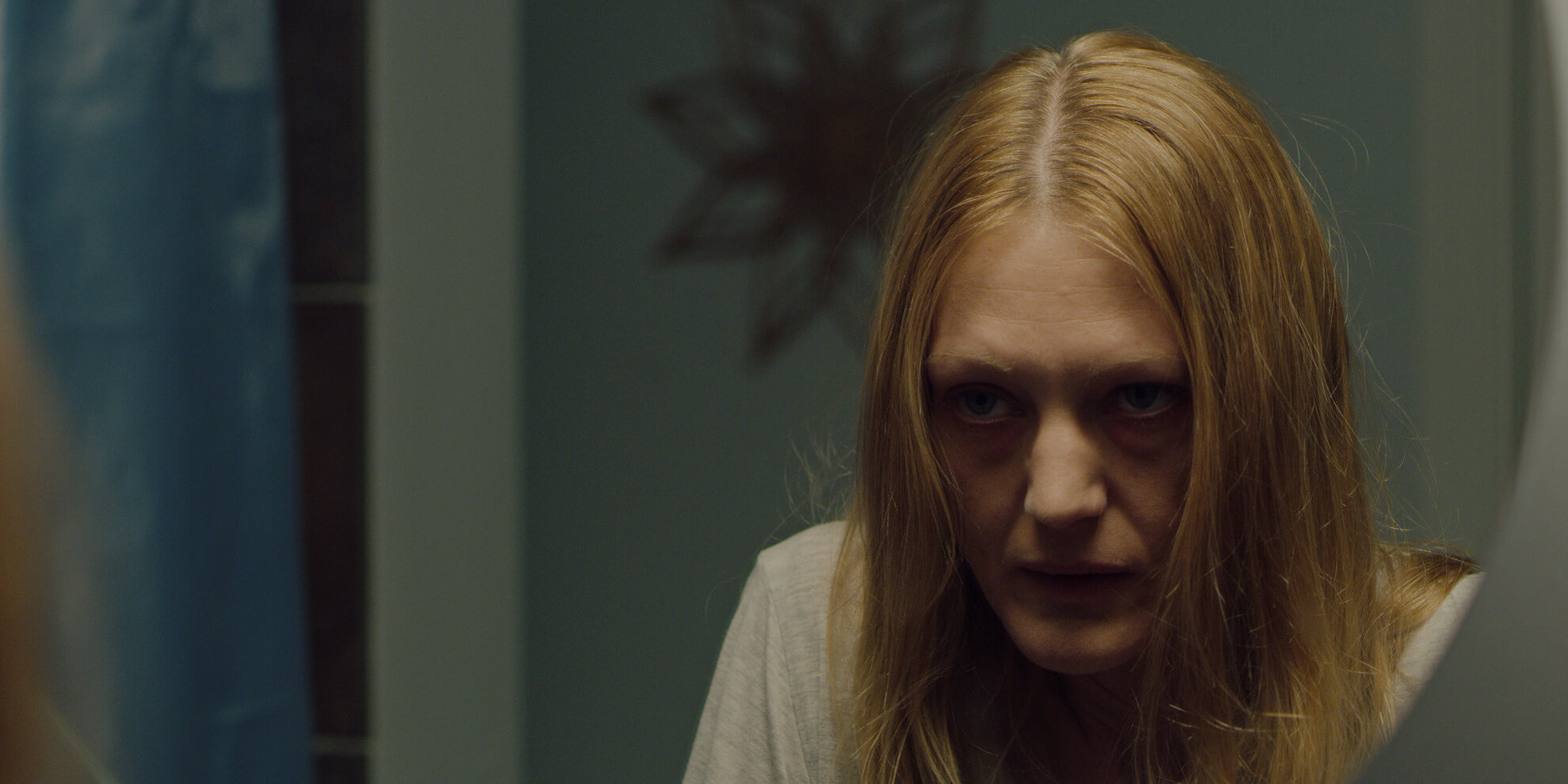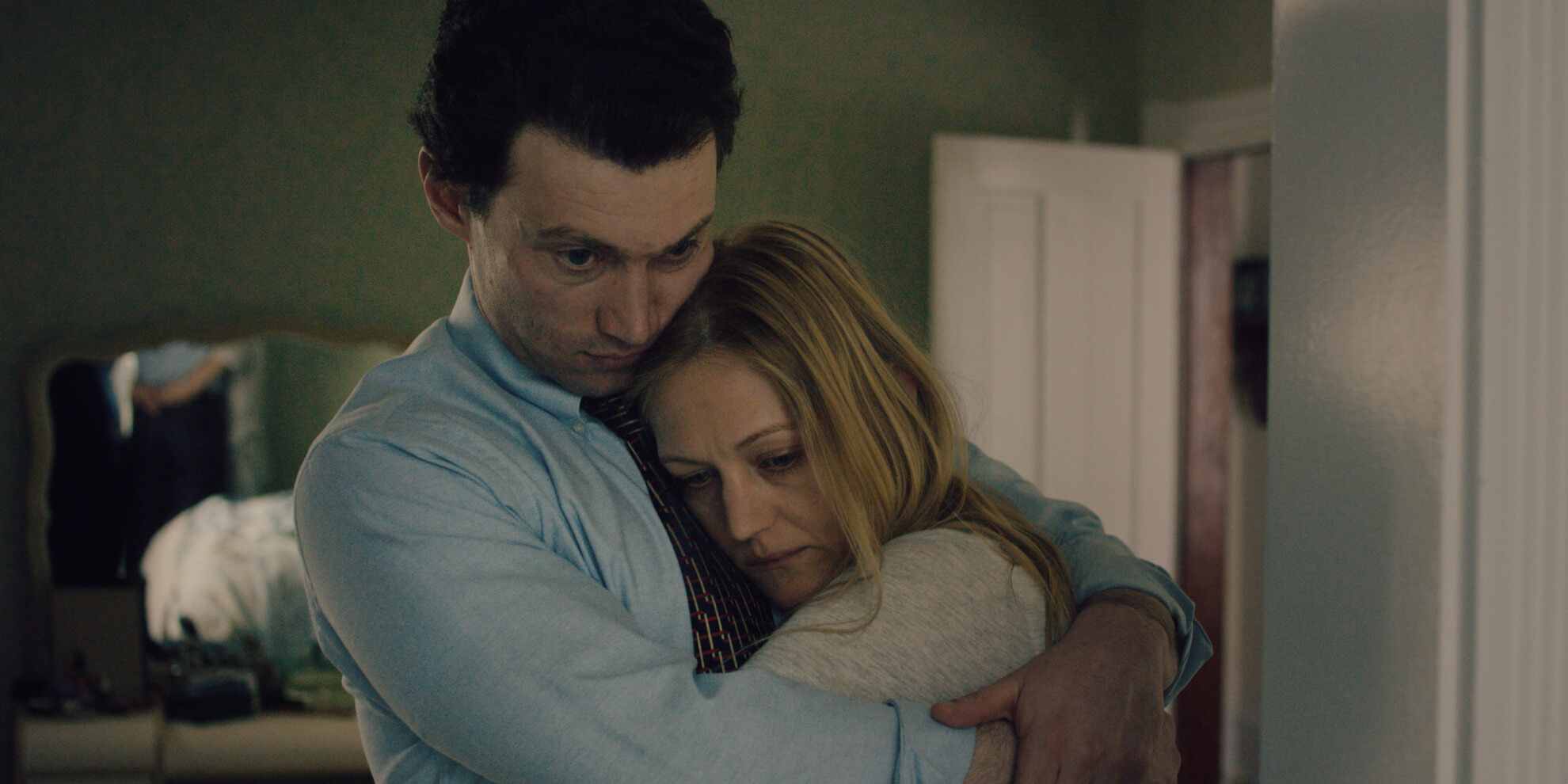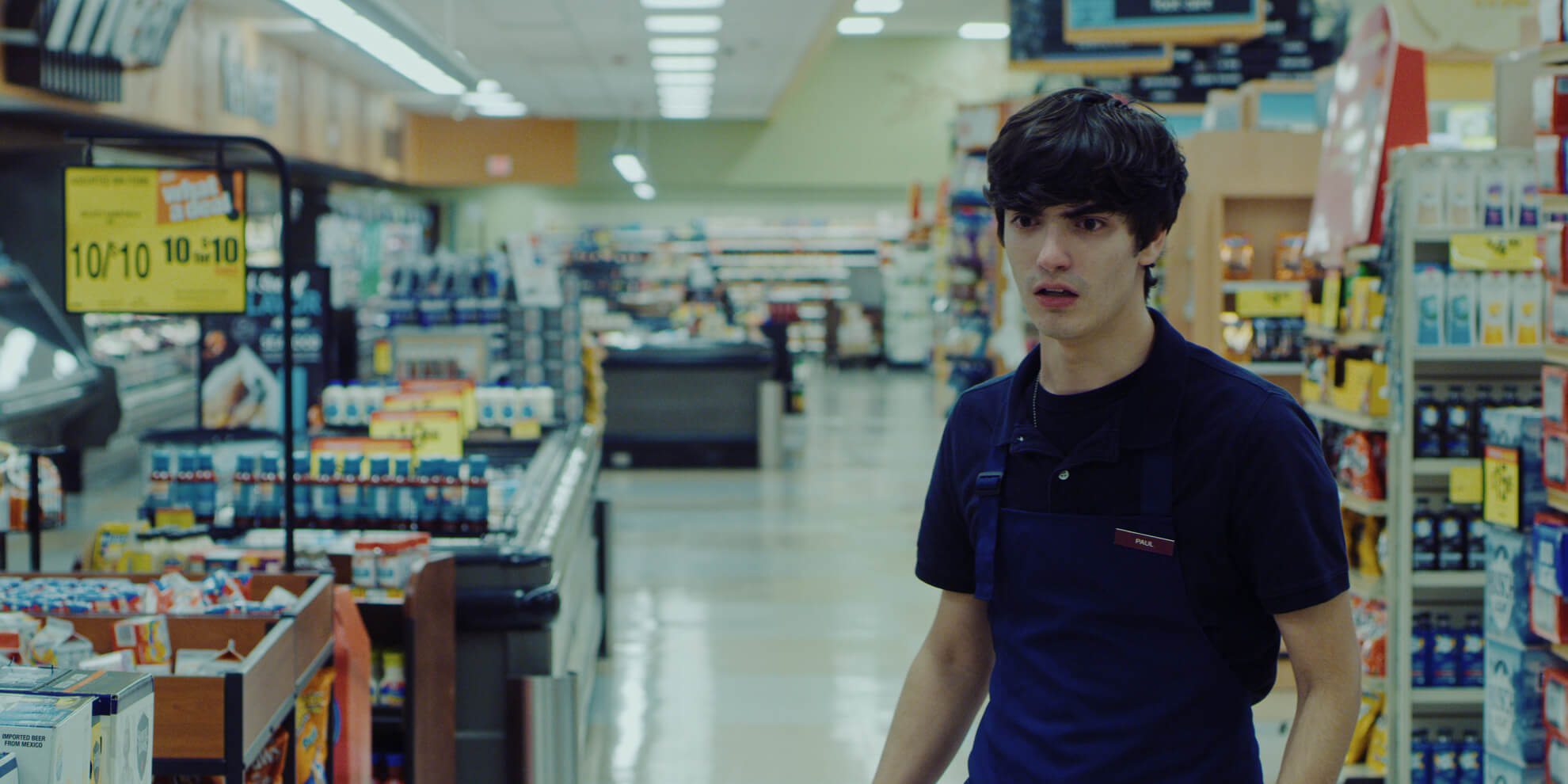After a car accident, Holly's (Azura Skye) seemingly perfect life starts to crumble, leaving pieces of her former self on the side of the road. She begins to fold under the pressures of motherhood and marriage in this bleak adaptation of the American Dream. Dean Kapsalis' feature film debut, The Swerve is a slow burn with a finale that leaves you speechless.

Swerve: to change direction abruptly. Holly is the centerpiece of the film. Her life is straight and narrow, cookie-cutter to those on the outside. These pressures begin to weigh on her after she gets involved in a deadly car crash. Holly's mask starts to slip as she struggles with reality. Did this car accident really happen, or has she just convinced herself that it happened? As the film slowly unfolds, so does Holly's psychosis. She is depressive and unable to navigate back to her lane, which sets in motion a series of truly horrific events. Azura Skye's performance is one that will stay with you after you've digested the runtime. The Swerve is a character study that takes on a lot of ideas, but depression is at the forefront. Skye can make Holly's downward spiral natural, making it so that we feel there's no way for her to escape her despondency. Holly swerving her car that fateful night is a catalyst in her mental spiral; it propels her inner swerve - a directional change of her life and mental state.

The American Dream. America is essentially a character in this film. There are flags displayed throughout the film as well as apple pie being a recurring motif. The apple pies are a Western staple and represent all the pressures of her current life and disdain for her past. Holly has the American Dream. She is a white woman with a financially stable nuclear family living happily in the suburbs; a life people dream of having. The apple pie is essentially a culmination of Holly's pain, the climax being Holly attempting to eat an entire pie (like she secretly did as a child and later denied for years). The Swerve serves as a cautionary tale for the American Dream. Though it is attainable, at what price? Holly's life appears to be perfect, however, she has a medicine cabinet full of drugs (is she mentally ill or is she just another suburban pill-popping mother?), a loveless marriage, two asshole sons that are rude to her, and a sister that continuously brings up a shaky past. The only attention Holly is receiving is from one of her students and it is not appropriate. In the end, audiences are left with the idea that not everything that glitters is gold.

Kapsalis has made a great debut. He keeps scenes concise and then moves on before you're able to digest what happened. His method simulates the way people get enveloped with depression. These people experience life as a string of stressful and despondent moments with little to no breaks. Kapsalis' script is subtle, showing us the despair in everyday life, with a Shakespearean end that will haunt you. Though the script isn't perfect, Skye's performance is and it carries the film. Mark Korven's score has a gentle hum of anxiety that pulls this slowly paced film together.
Dean Kapsalis' confidently creates a slow, grim look into suburban domesticity. The Swerve is a solid debut that will stay with you long after the credits roll.


